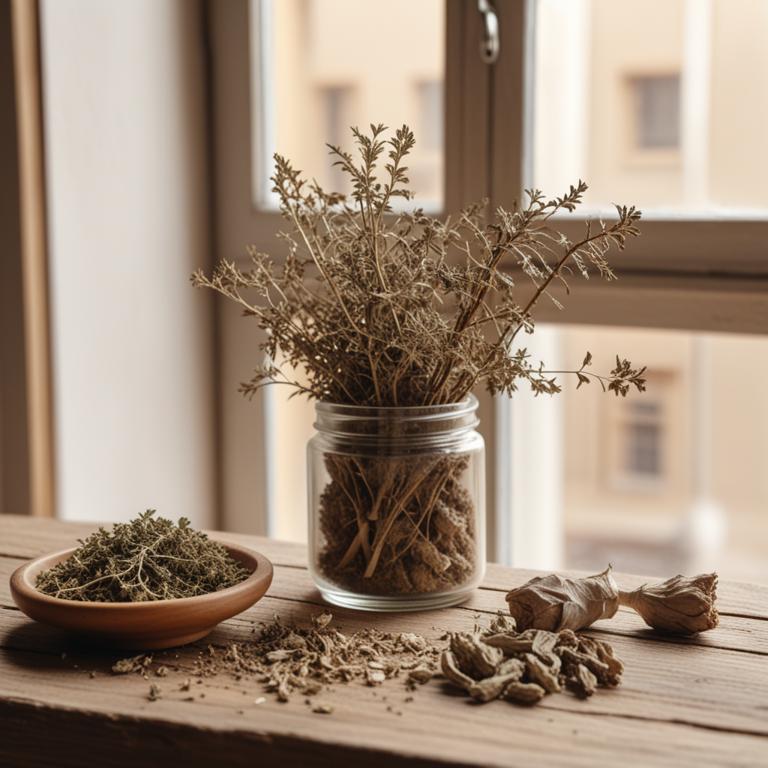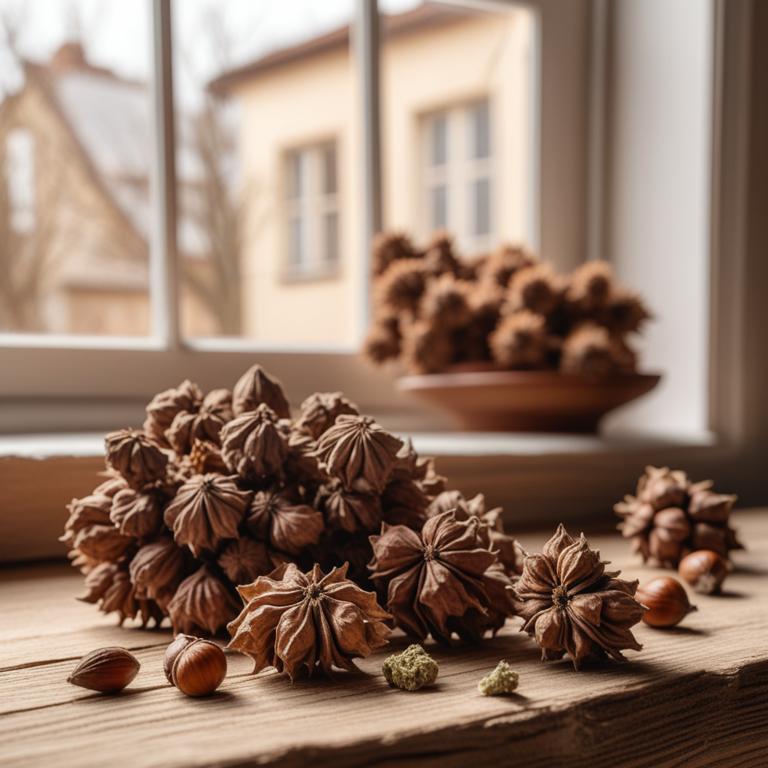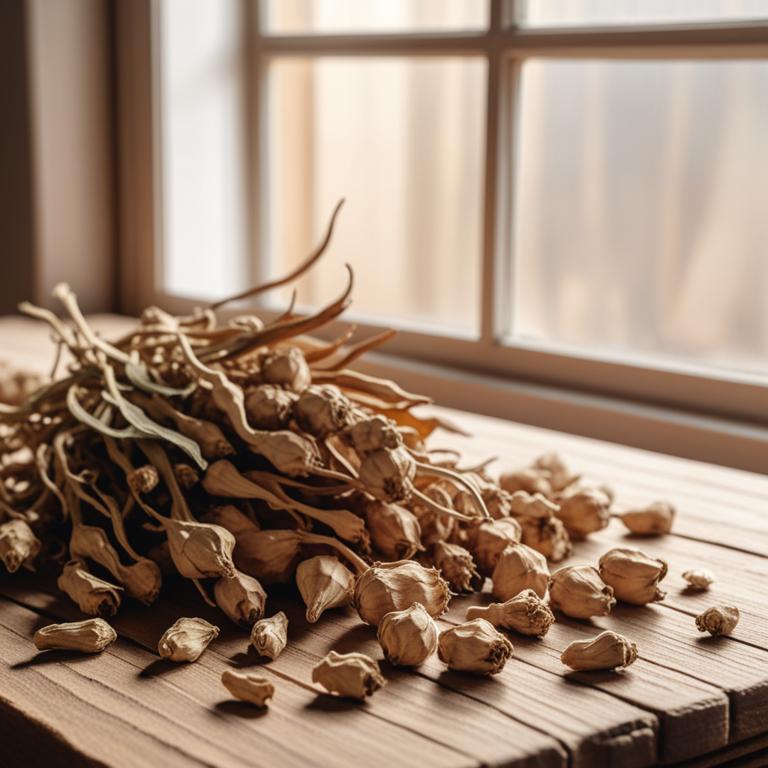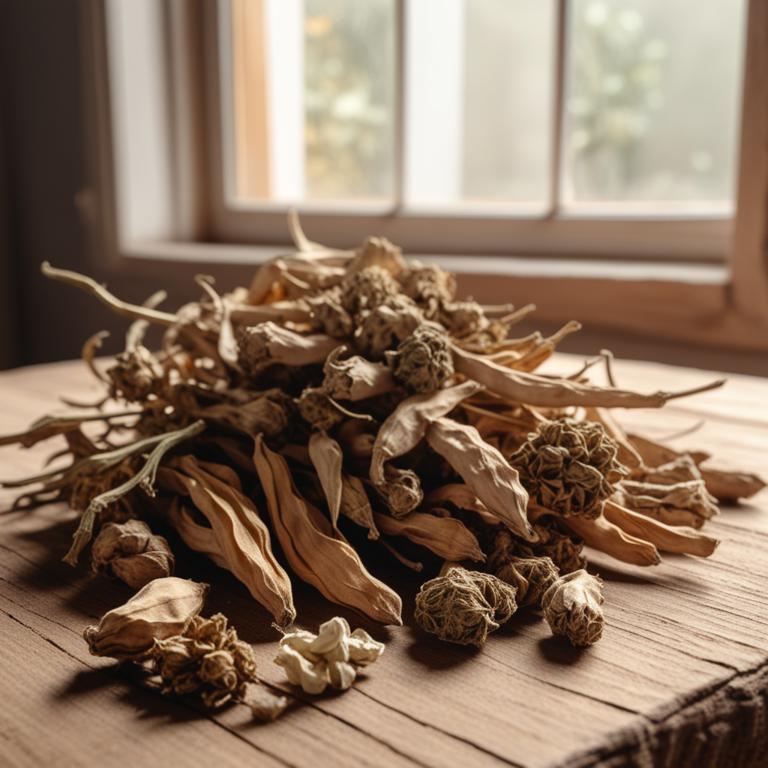Updated: Dec 1, 2024
Mucus in Stomach: Understanding the Causes and Medicinal Herbs for Relief

Mucus in the stomach, also known as stomach mucus or gastric mucus, is a thick, slimy substance that can cause discomfort and digestive issues.
When you have too much mucus in your stomach, you may feel bloated, nauseous, and experience stomach pain. This can affect your daily life, making it difficult to enjoy your favorite foods or even go about your day without feeling uncomfortable. The causes of mucus in the stomach are usually related to diet and digestion. Consuming spicy or fatty foods, eating too quickly, or having a digestive system that's out of balance can all contribute to excess mucus production. Stress, certain medications, and underlying health conditions like gastroesophageal reflux disease (GERD) or irritable bowel syndrome (IBS) can also play a role. Fortunately, there are several herbal remedies that can help alleviate mucus in the stomach.
Herbs like slippery elm, marshmallow root, and licorice root have natural anti-inflammatory properties that can soothe and protect the stomach lining. These herbs work by creating a protective barrier that helps prevent mucus from building up and causing discomfort. To use these herbs for relief, you can try making a tea by steeping dried herbs in hot water. Slippery elm and marshmallow root teas are particularly effective for calming stomach inflammation and reducing mucus production. You can also find herbal supplements or capsules that contain these ingredients. Another option is to take licorice root tea after meals to help soothe the stomach and prevent mucus buildup.
By incorporating these herbal remedies into your diet, you may find that your digestive issues improve and you can enjoy a more comfortable, healthy life.
Table of Contents
- What initiates the formation of mucus in stomach?
- What are the advantages of employing herbs for mucus in stomach?
- What are the primary medicinal herbs used to treat mucus in stomach?
- What are the most popular herbal remedies for mucus in stomach?
- What herbs should be avoided if you have stomach mucus?
- FAQ
What initiates the formation of mucus in stomach?
The main causes of mucus in stomach are related to various issues that affect the digestive system.
One of the common causes is Gastroesophageal Reflux, where stomach acid flows back up into the esophagus, irritating the lining and producing mucus to protect it. This can lead to a buildup of mucus in the stomach. Pyloric Stenosis, a condition where the opening between the stomach and small intestine becomes narrowed, can also cause mucus production as the stomach tries to protect itself from the increased pressure.
Inflammatory Bowel Disease, such as Crohn's disease or ulcerative colitis, causes chronic inflammation in the digestive tract, leading to mucus production as the body tries to heal itself. Gastritis, an inflammation of the stomach lining, can also cause mucus production as the stomach lining tries to protect itself from the acid and other irritants. Lastly, Gastroenteritis, an infection of the stomach and intestines, can lead to mucus production as the body tries to fight off the infection.
In each of these cases, the mucus is produced as a natural response to protect the digestive system from the underlying issue.
What are the advantages of employing herbs for mucus in stomach?
Using herbs for mucus in the stomach can be really helpful.
They can reduce inflammation and swelling in the digestive tract, making it easier to digest food. These herbs can also thin out the mucus, making it easier to pass out of the body, which can help to relieve symptoms like bloating and discomfort.
Additionally, they can help to calm down the stomach and reduce nausea and vomiting. Some herbs can also help to kill off bacteria and other organisms that can cause the mucus to form in the first place, which can help to prevent future problems. This can be especially helpful for people who experience digestive issues regularly.
By using these herbs, people may be able to find some much-needed relief from their symptoms and improve their overall digestive health.
What are the primary medicinal herbs used to treat mucus in stomach?

When you have mucus in your stomach, it can be painful and uncomfortable.
Herbs can be a great help in reducing this discomfort. Let's look at some of the best herbs to use. Zingiber officinale, also known as ginger, is a popular herb for many stomach issues, including mucus. It has anti-inflammatory properties that help reduce swelling and ease nausea. Ginger also helps to stimulate digestion and break down food in your stomach, making it easier to digest. Glycyrrhiza glabra, or licorice root, is another herb that can help with mucus in the stomach. It has a soothing effect on the digestive system, reducing inflammation and calming any irritation in the stomach lining. Licorice root also helps to break down mucus and reduce its production.
Foeniculum vulgare, or fennel, is a natural expectorant, which means it helps to break down mucus and make it easier to expel from your body. It also has anti-inflammatory properties that help reduce swelling and ease discomfort in the stomach. Curcuma longa, or turmeric, is a powerful herb that contains a compound called curcumin. This compound has strong anti-inflammatory properties that help reduce swelling and ease pain in the stomach. Turmeric also helps to stimulate digestion and break down mucus, making it easier to digest. Cinnamomum verum, or cinnamon, is another herb that can help with mucus in the stomach. It has anti-inflammatory properties that help reduce swelling and ease pain, and it also helps to stimulate digestion and break down food in your stomach. All of these herbs can be consumed in different ways, such as tea, capsules, or powder. You can also add them to your meals or drinks for extra benefits.
Remember to always consult with a healthcare professional before using any new herbs, especially if you have any underlying health conditions.
What are the most popular herbal remedies for mucus in stomach?
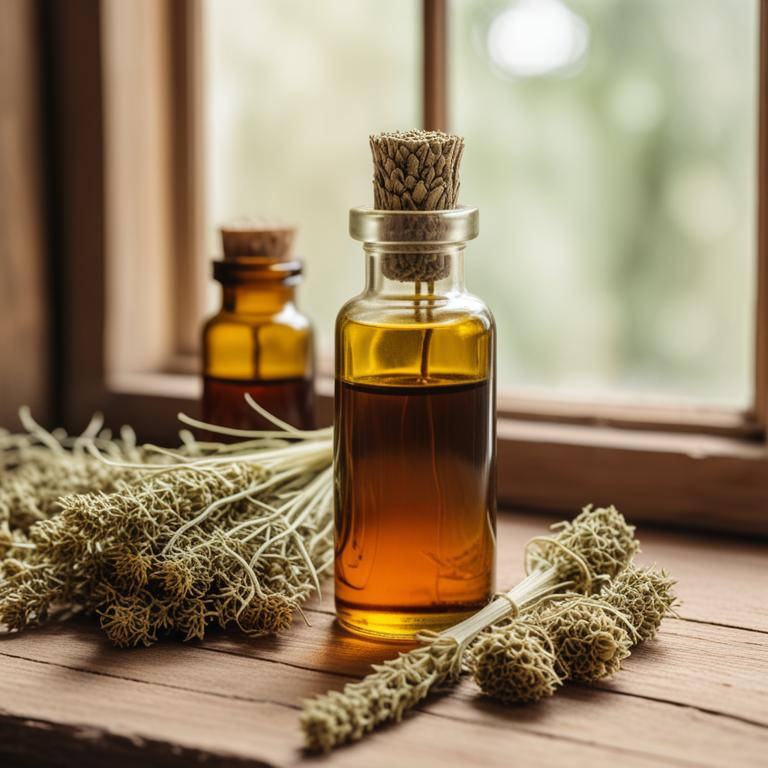
Herbal preparations can be really helpful for mucus in the stomach.
A decoction is a strong liquid made by boiling herbs in water, which can help break down thick mucus and ease digestion. It's a good option when you need a strong dose of herbs to get things moving. On the other hand, an infusion is a weaker liquid made by steeping herbs in hot water, which can be soothing and gentle on the stomach.
If you prefer a concentrated dose of herbs, a tincture can be a good choice. It's made by soaking herbs in a solvent like alcohol, which helps extract the active ingredients. When you need a direct application, a suppository can be useful. It's made by mixing herbs with a base and shaping it into a small pellet that you insert into your rectum, where it can be absorbed directly into your body.
Lastly, a capsule is a convenient way to take herbs, as it's easy to swallow and the herbs are protected from light and air, which can damage them.
Additional Resources:
What herbs should be avoided if you have stomach mucus?
If you have mucus in your stomach, it's best to be careful with certain herbs.
For instance, Piper nigrum, or black pepper, can irritate your stomach lining and make the mucus worse. It's like pouring fuel on a fire - it might make things worse in the long run. Echinacea purpurea, commonly used to boost the immune system, can also be problematic as it can stimulate the stomach to produce more acid, which can irritate the mucus.
Cassia auriculata, a type of flowering plant, can be too drying for your stomach, making the mucus even thicker and more difficult to digest. Thymus vulgaris, or common thyme, is a popular herb used in cooking, but it can also be too harsh for your stomach, especially when you already have mucus. Arctium lappa, or burdock root, is another herb that can be too stimulating for your stomach, which might not be what you need when you're dealing with mucus.
When your stomach is already struggling with mucus, it's better to stick with gentle herbs that won't make things worse.
FAQ
Are there any specific herbs that can prevent mucus in stomach?
Ginger is known to help reduce mucus in the stomach.
It has natural anti-inflammatory properties that can soothe the digestive system and prevent the buildup of mucus. Additionally, some people find that fennel helps to ease digestive discomfort and reduce mucus production in the stomach.
These herbs can be consumed in tea or capsule form.
Is it safe to use herbal remedies for mucus in stomach during pregnancy?
When you're pregnant, it's best to be cautious with herbal remedies.
Some herbs, like slippery elm, might help with stomach mucus, but others can be bad for you or your baby. Look for advice from a trusted source, and read labels carefully.
If you're unsure, it's better to skip herbal remedies and try safer options.
Are there any herbs that can reduce the frequency of mucus in stomach?
Ginger is often used to help soothe stomach issues and reduce mucus production.
Its anti-inflammatory properties may help calm the digestive system and alleviate symptoms of excess mucus in the stomach.
Fennel and peppermint are also herbs that may have a similar effect, as they can help ease digestion and reduce discomfort.
Can i combine different herbal remedies for mucus in stomach?
You can combine different herbal remedies for mucus in the stomach, but be cautious.
Some herbs can interact or worsen symptoms. For example, ginger and peppermint might calm stomach issues, while slippery elm and marshmallow root can help soothe and protect the digestive tract.
Experiment with small amounts and monitor your body's response.
Related Articles
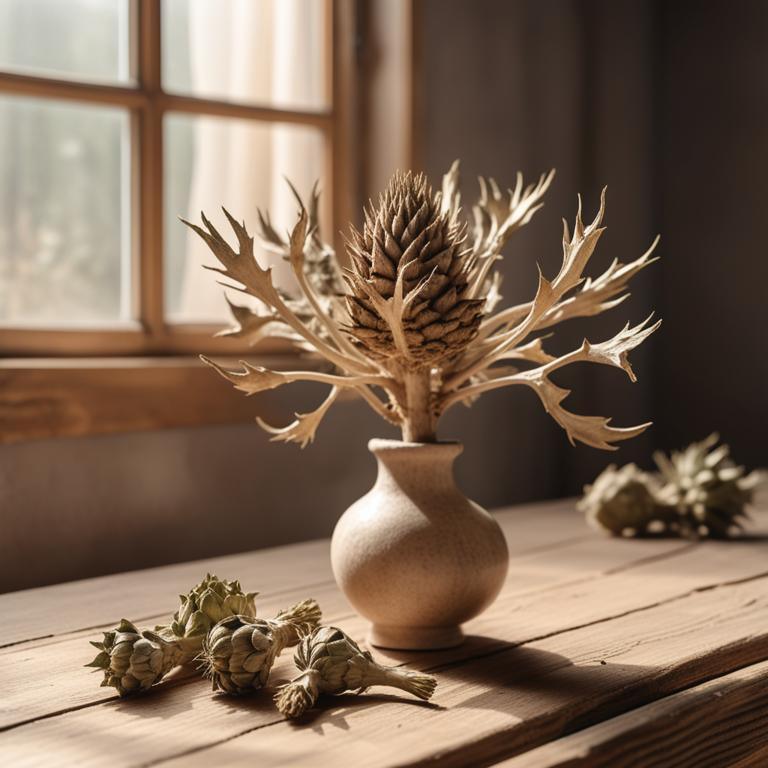
Jaundice Causes and Natural Herbal Treatments Explained
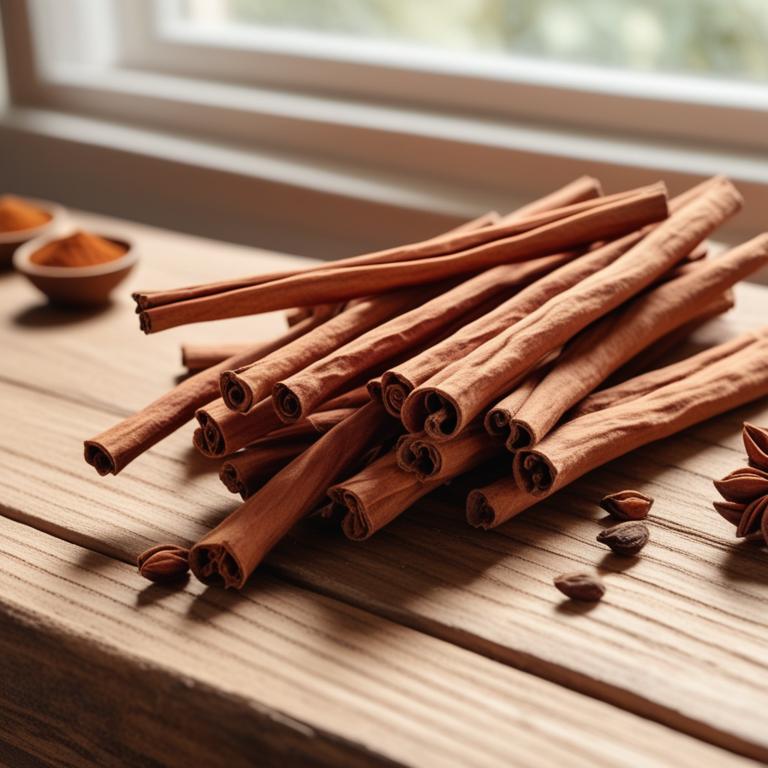
Overcoming Loss of Appetite: Causes, Medicinal Herbs, and Herbal Remedies
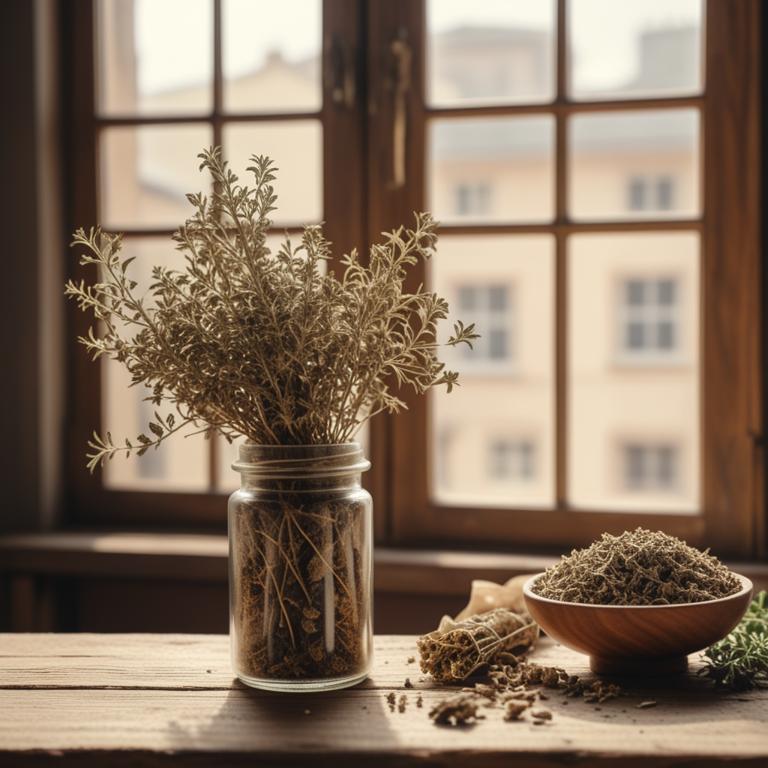
The Causes and Herbal Preparations of Stomach Discomfort
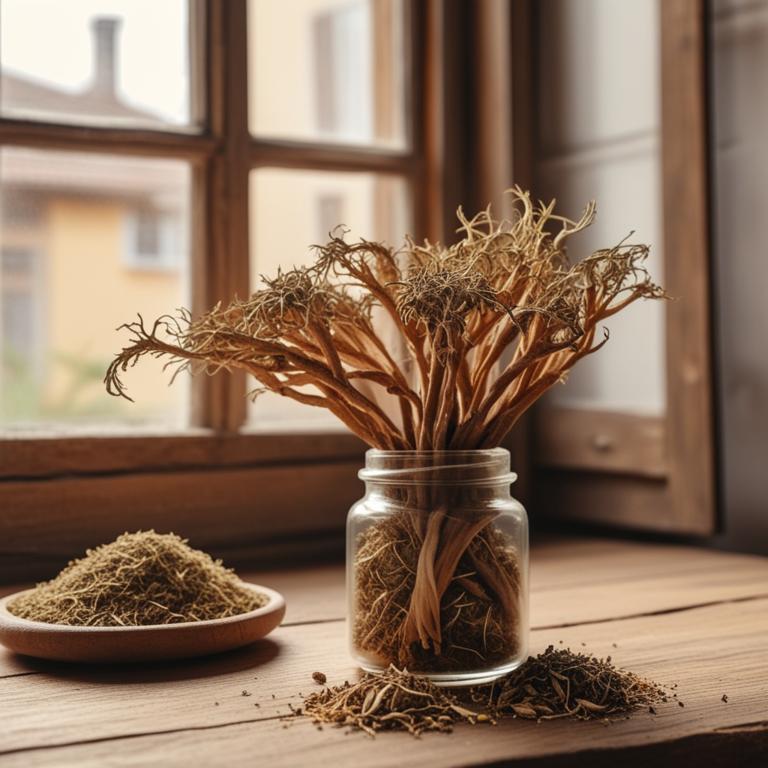
Ulcerative Colitis: Investigating the Role of Medicinal Herbs and Preparations
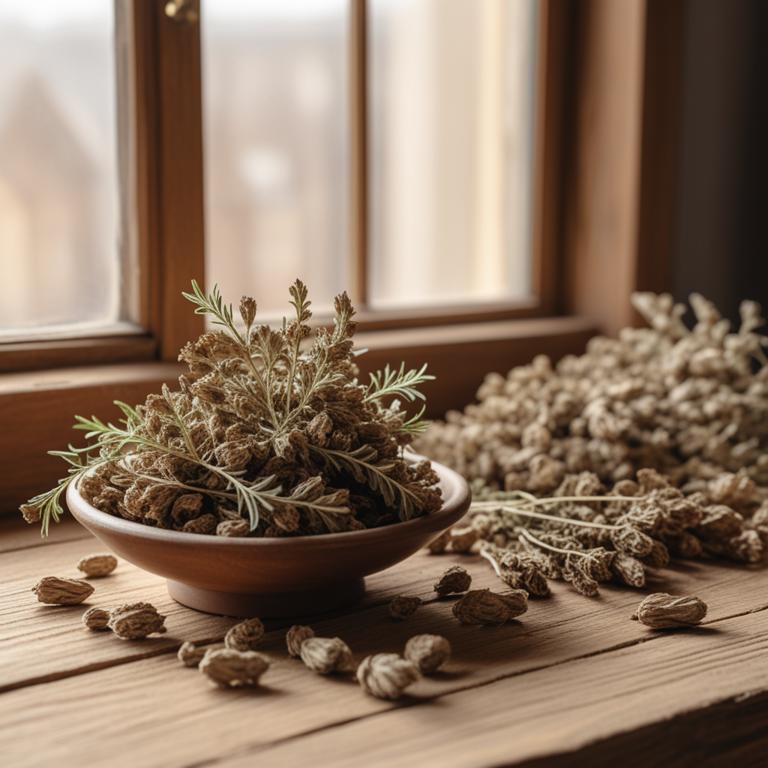
Diverticulitis Causes, Herbal Remedies, and Alternative Approaches to Healing
